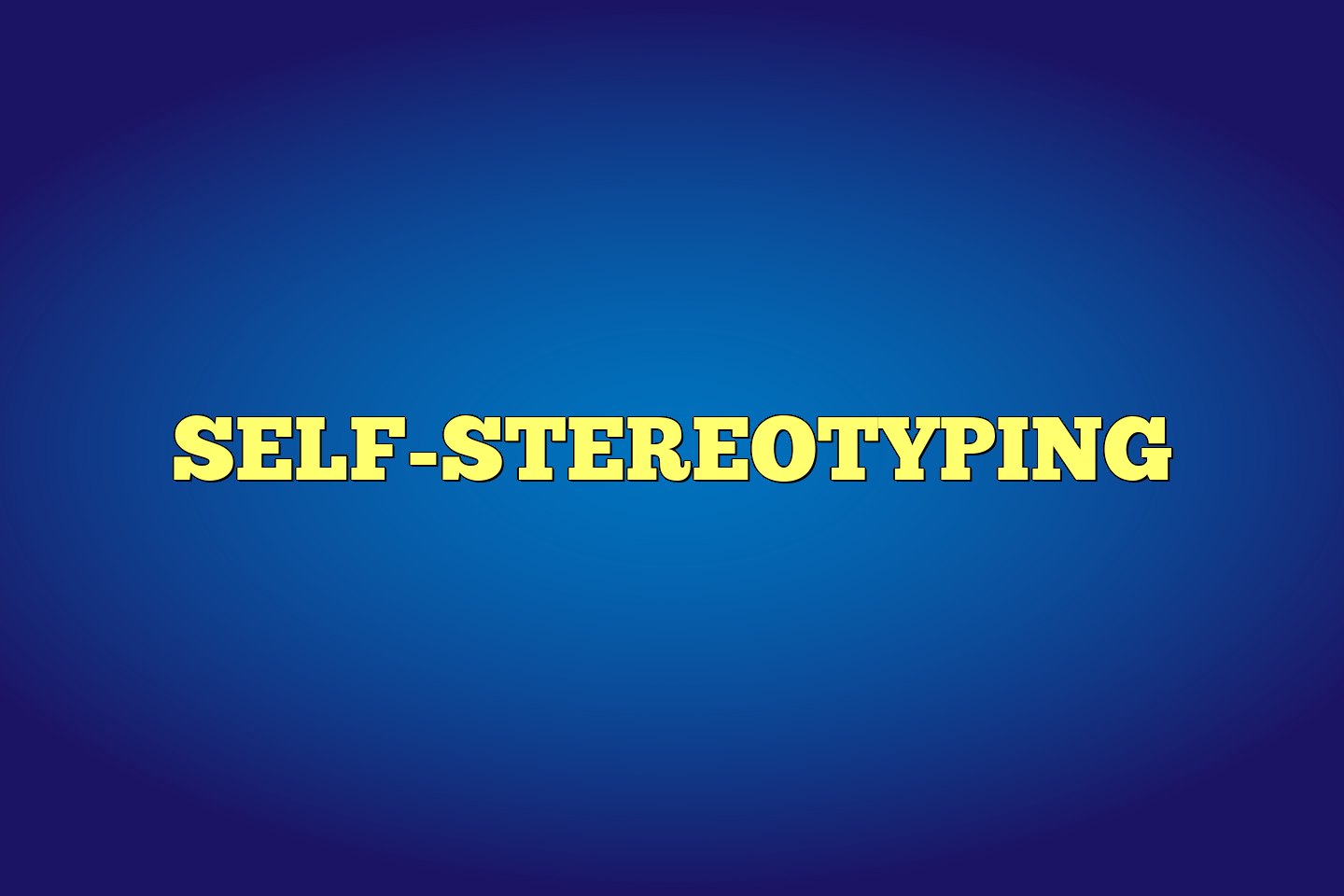Self-stereotyping is a psychological phenomenon in which individuals adopt and internalize stereotypes about their own social group. This means that individuals not only hold stereotypes about others, but also about themselves. These self-stereotypes can have a powerful impact on individuals’ perceptions and behaviors, influencing how they see themselves and how they interact with others. In this essay, we will explore the concept of self-stereotyping, its potential causes, and how it can affect individuals’ thoughts, feelings, and actions. We will also discuss the potential consequences of self-stereotyping and how individuals can challenge and break free from these limiting beliefs.

Stereotyping not only includes beliefs about others but it can also describe how we see ourselves in certain situations. When people self-stereotype, they come to see themselves in a way more consistent with stereotypes about their in-group than they otherwise would. Although at any given time, people’s active self-concept is a mix of situational-triggered and chronically accessible identities, self-stereotyping causes the active self-concept to more closely resemble stereotypes about one’s accessible in-group. For instance, with self-stereotyping an in-group member may begin to identify with the group by acting in a stereotypic way, specific to that in-group. By exhibiting these characteristics, the individual feels more in tune with the needs and attitudes of the group.
The growth of one’s personal social identity can directly affect the decline in personal identity. A person’s sense of conforming to group goals and the identity perceived of the group essentially become more important when it comes to guiding beliefs and behaviors. In this distinction, a self-stereotype reflects the views placed on a general group which is accepted by a group member.
Studies
The work of Latrofa et al. supports this theory through research on the cognitive process that initiates self-stereotyping behaviors. In their research, they found that low-status group members are more likely to be influenced by stereotypical traits of higher-ranking group members and begin to exhibit these characteristics both negatively and positively, whereas, high-ranking group members are more likely to identify with personal characteristics.
Some researchers have found that self-stereotyping is somewhat dependent upon an individual’s belief that he/she and the group are capable of change. If the individual believes that the group is not similar to the needs of the individual, the individual will then adapt to his/her own personality traits in order to maintain membership within the in-group. If the in-group is flexible to change the personalities of its members, an individual is more likely to maintain his/her self image and avoid self-stereotyping. These researchers also found that individuals tend to adapt to group characteristics more readily if they see this change as an enhancement to the self. Therefore, the outlook an individual has on a group influences how much the individual is willing to sacrifice to become a member of the group.